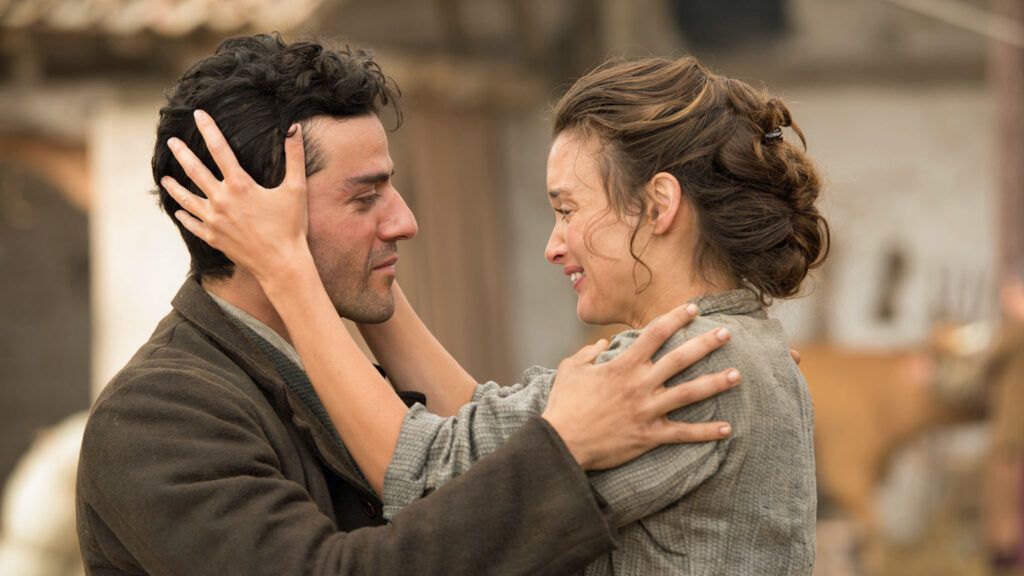Warning: This review contains spoilers.
Director Terry George has good intentions with The Promise, his latest historical drama focusing on the genocide of peaceful Armenians in Turkey during World War I, but the film starring Oscar Isaac and Christian Bale never quite delivers on its potential.
Between the years of 1915 and 1923, an estimated one and a half million Armenians were believed to be massacred by the Young Turks, the political party ruling over the Ottoman Empire during and after World War I. The genocide saw families displaced from their homes, forced into the desert to starve and die of thirst, Armenian scientists and philosophers arrested and executed for treason, hundreds of thousands of Armenians displaced to Syria and many more abused, tortured and killed. The Turkish government continues to deny the genocide took place, though many countries and historians recognize the atrocities that happened in the country during that time.
This is important to know going into George’s latest directorial effort because, while the film does its best to illustrate the horrors faced by the Armenian people, it loses its focus in a love story that not only weighs the movie down but severely strips it of its authenticity and purpose.
The movie begins with Isaac’s Mikael, a young apothecary in a small village with dreams of becoming a doctor. He has no money, so he becomes betrothed to a wealthy young woman in his village, accepting her family’s dowry to attend university in Constantinople while promising to return to marry her once he completes his studies.
It doesn’t take long for Mikael to be tempted away from his promise of marriage once he arrives in the bustling metropolis. His wealthy uncle employs a beautiful tutor, Ana (Charlotte Le Bon) for his two daughters. She’s recently returned from Paris with plenty to entice Mikael. Of course, Ana has a beau of her own, Chris (Bale), a reporter for the Associated Press who’s determined to reveal the corruption of the Turkish government.
Ana and Mikael bond over their shared Armenian heritage and though both try to resist the pull of attraction, anti-Armenian riots in the streets force the pair to take shelter for a night in a hotel where they ultimately give in to their feelings.
From there the consequences of war pull the trio apart. Mikael is arrested and taken to an Armenian labor camp while trying to free his uncle and Ana and Chris travel to a mission to help young orphans trying to flee the country.
Mikael ultimately escapes the camp, returns home and chooses to live with his once promised bride hidden in the mountains above his village but when he learns of Ana’s stay at the mission, he joins her there, helping to get the children and his family to safety, but not before his entire village is massacred and his family, along with his new bride, is killed.
If this recap sounds mechanical it’s because the film itself feels that way. Most of the action is predictable – we know Mikael will fall in love with Ana, we know a love triangle will take shape, we know Mikael will escape and flee home and we know his wife will be murdered at some point to free him up to be with Ana once more. Of course, in between, the effects of war are shown through a graphic lens. Bodies in mass graves, women and children shot in the desert, men hanged and families torn apart. The images are raw and should be lasting, but because the emphasis of the film falls on when and how its two leads will finally reunite, their importance is lost.
Sadly, the dreaded love triangle isn’t the only trope this movie falls prey to. While Mikael begins as the story’s protagonist, halfway through the film it is Bale who is fueling the action. No surprise there as Bale is a top-billed star, and there is something to be said for the character he plays – a reporter seeking to expose the violence inflicted by the Turkish government. In real life, if it weren’t for foreign diplomats, reporters and eye witnesses, the true devastation caused by the Young Turks may have been allowed to be neatly swept under the rug.
There was a way to portray the value of men and women like Chris who risked their lives to shed light on the horrible acts committed against a peaceful people without Mikael and the rest of the Armenian characters in the film losing their agency. Unfortunately, George wasn’t able to deliver on it. Instead, the movie feels disjointed, with Mikael becoming a victim of violence and Chris inhabiting the exhausted white savior role.
The movie’s saving grace is that it earnestly seeks to shed light on a period in history many would like to forget. It humanizes something we have only read about in textbooks and it comes at a time when mass deportations, refugee crises and the slaughter of more innocent lives continues to happen in the Middle East and around the world. Maybe there is something to be learned from The Promise if you can look past its muddled love story but, at the very least, the struggle of the Armenian people, the violence they faced and the courage they possessed deserves to be shown on screen.





